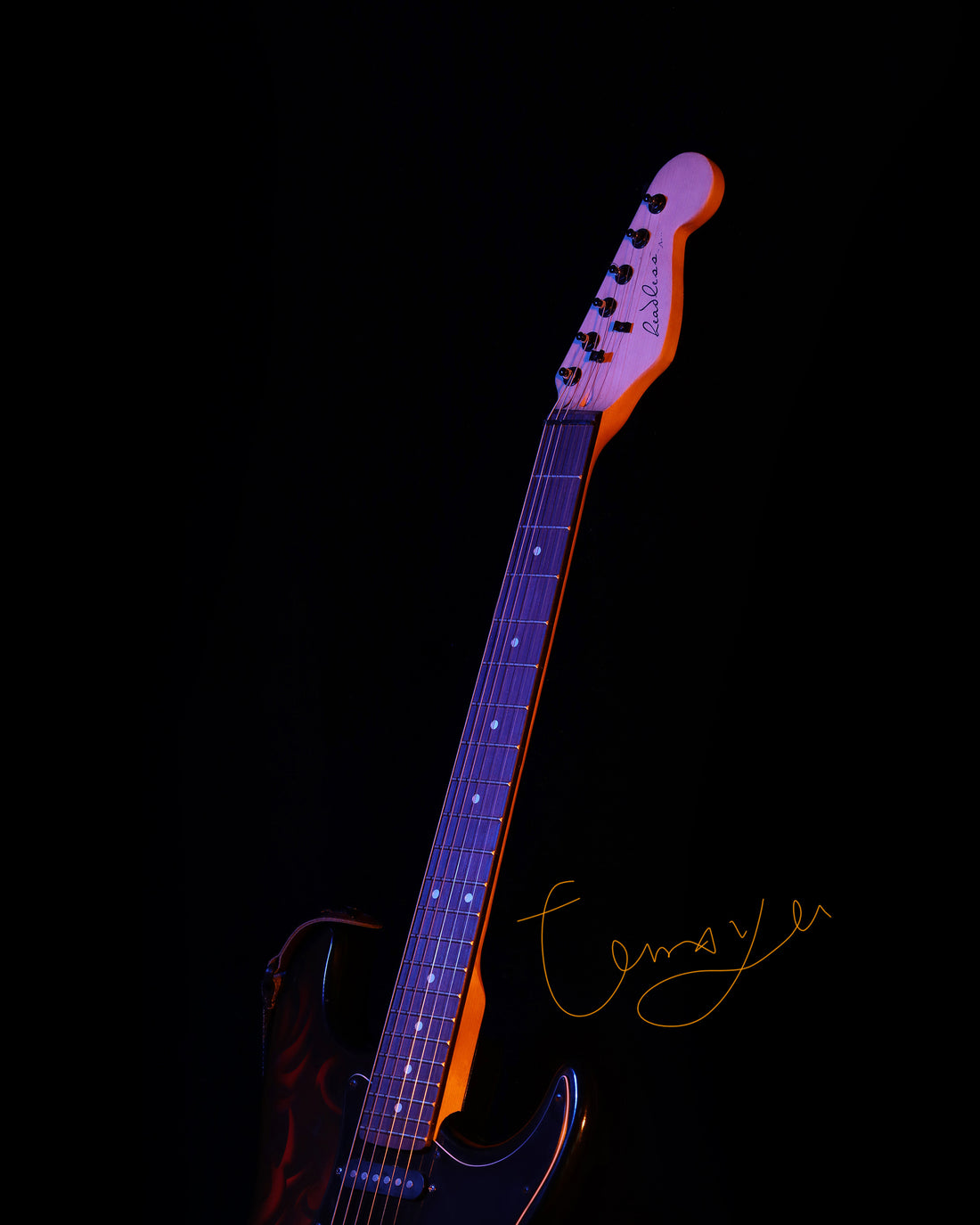
The Sound Link: Unleashing Your Guitar's Potential with a High-Quality Guitar Cable to Amp Connection
Share
As a seller specializing in guitar accessories, I frequently encounter guitarists who are eager to optimize their sound quality. One often underestimated component in the quest for exceptional tone is the guitar cable to amp connection. In this blog post, we will delve into the significance of selecting a high-quality guitar cable and how it can unlock the true potential of your instrument.
Signal Fidelity: The guitar cable serves as the conduit between your guitar and amplifier, carrying the delicate signals produced by your instrument. Choosing a high-quality cable ensures optimal signal fidelity, allowing the nuances of your playing to be faithfully transmitted. Look for cables with quality conductors that minimize signal loss and preserve the integrity of your guitar's sound.
Low Noise and Interference: Unwanted noise and interference can significantly detract from your guitar's tone. Well-shielded cables effectively reject external interference, such as electromagnetic and radio frequency interference, keeping your signal clean and free from unwanted hums or buzzes. Shielding is especially crucial for live performances where the stage environment is prone to electrical interferences.
Durability and Reliability: Gigging musicians know the importance of reliable gear. A durable guitar cable can withstand the demands of frequent use, ensuring a consistent connection without interruptions or signal dropouts. Look for cables with reinforced connectors, robust strain relief, and sturdy construction to withstand the rigors of the road.
Length and Flexibility: The length of your guitar cable affects your mobility on stage and in the studio. Consider the distance between your guitar and amplifier, as well as your performance style, when choosing the cable length. Longer cables provide greater freedom of movement, while shorter ones minimize signal loss. Additionally, a flexible cable is easier to manage and less likely to get tangled or restrict your movements.
Connectors and Contacts: The connectors at each end of the cable are crucial for a secure and reliable connection. Quality connectors with precise contacts ensure optimal conductivity and minimize signal degradation. Gold-plated connectors are often preferred for their corrosion resistance and superior signal transfer properties.
Signal Fidelity: The guitar cable serves as the conduit between your guitar and amplifier, carrying the delicate signals produced by your instrument. Choosing a high-quality cable ensures optimal signal fidelity, allowing the nuances of your playing to be faithfully transmitted. Look for cables with quality conductors that minimize signal loss and preserve the integrity of your guitar's sound.
Low Noise and Interference: Unwanted noise and interference can significantly detract from your guitar's tone. Well-shielded cables effectively reject external interference, such as electromagnetic and radio frequency interference, keeping your signal clean and free from unwanted hums or buzzes. Shielding is especially crucial for live performances where the stage environment is prone to electrical interferences.
Durability and Reliability: Gigging musicians know the importance of reliable gear. A durable guitar cable can withstand the demands of frequent use, ensuring a consistent connection without interruptions or signal dropouts. Look for cables with reinforced connectors, robust strain relief, and sturdy construction to withstand the rigors of the road.
Length and Flexibility: The length of your guitar cable affects your mobility on stage and in the studio. Consider the distance between your guitar and amplifier, as well as your performance style, when choosing the cable length. Longer cables provide greater freedom of movement, while shorter ones minimize signal loss. Additionally, a flexible cable is easier to manage and less likely to get tangled or restrict your movements.
Connectors and Contacts: The connectors at each end of the cable are crucial for a secure and reliable connection. Quality connectors with precise contacts ensure optimal conductivity and minimize signal degradation. Gold-plated connectors are often preferred for their corrosion resistance and superior signal transfer properties.
